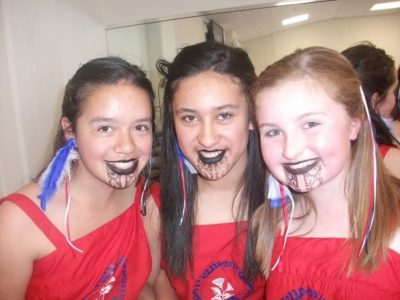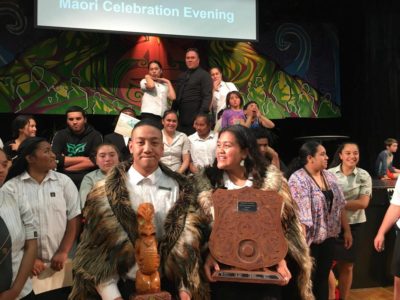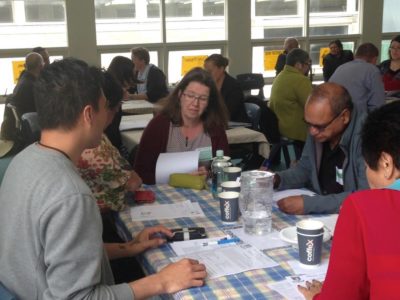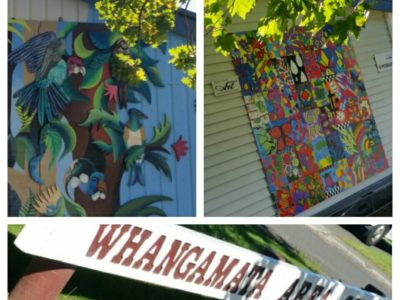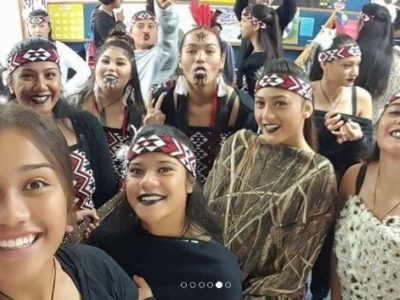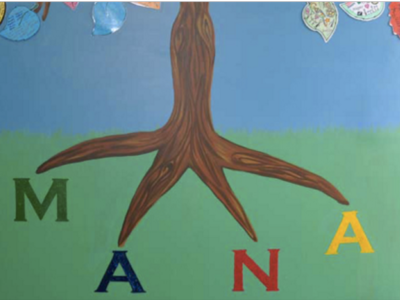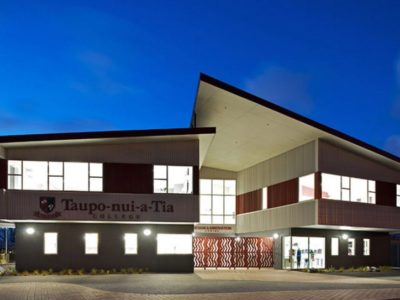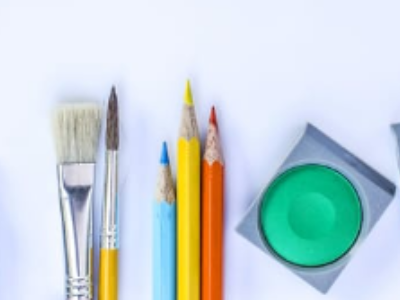https://kep.org.nz/news/2016/australian-professors-in-indigenous-education-visit-kia-eke-panuku-schools
From Wednesday 26 October to Wednesday 2 November 2016, a small group of lecturers from the University of Sydney (Drs Cathie Burgess, Lorraine Towers and Kevin Lowe), who specialise in Aboriginal education, visited a number of Kia Eke Panuku schools. These included Kaikoura College (a week or so before the earthquake), Queen Charlotte College, Taupo-nui-a-Tia College and Mt Maunganui College.
All three were delighted to meet staff and students from each school, and apart from enjoying visiting different parts of the country again, were able to get a better understanding of the kinds of changes that Kia Eke Panuku schools are trying to achieve, each in their own way.
Kaikoura College
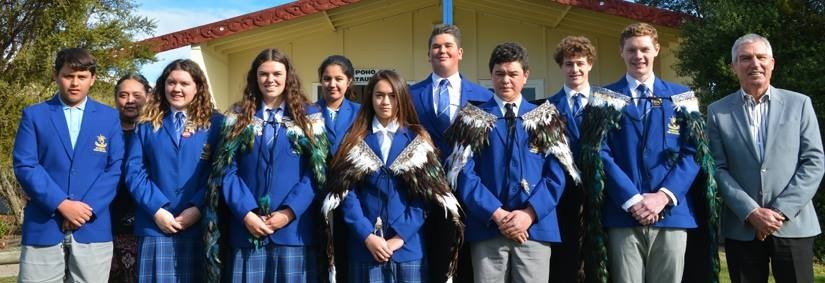 At Kaikoura College they saw how Principal John Tait has encouraged staff to participate in professional conversations that, at their core, address the issues of what type of society we want to live in, and what role teachers/principals have in contributing to social cohesion.
At Kaikoura College they saw how Principal John Tait has encouraged staff to participate in professional conversations that, at their core, address the issues of what type of society we want to live in, and what role teachers/principals have in contributing to social cohesion.
‘We noted that he sets high expectations for teachers and students, and the child-centred, holistic approach to teaching and learning and culturally responsive schooling has resulted in improved attendance, retention and much improved educational outcomes.’
Our visitors liked the changed format for Parents and Teachers’ nights to day-time appointments, where parents and students now both talk to teachers, with students leading the discussions. The concept of ‘Māori success as Māori’ was explained to them by John, who they believe demonstrates those attributes of leadership that reflect his mana, personal capacity, prestige and presence.
‘He helped us see ways of working with staff who, in the past, may have seen some student underachievement as being part of a longstanding pattern that was difficult to solve’.
Queen Charlotte College
At Queen Charlotte College our visitors said:
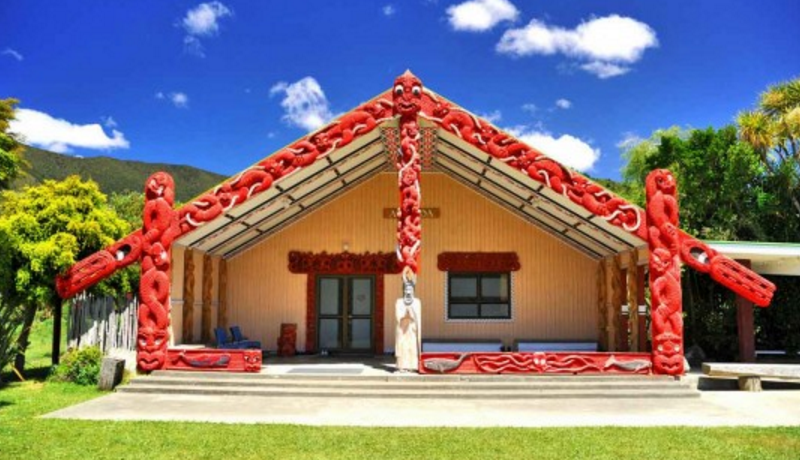 ‘We were privileged to be officially welcomed to the school with a pōwhiri that demonstrated pride in Māori culture by all students and staff (Māori and non-Māori alike). The day started for us on an inspiring note. And to see the school ‘Head Boy’, a non-Māori student, advance, speak in te reo Māori, and welcome us to the community, showed us how cultural inclusion and the influence of Māori language can affect the conōceptualisation of power and authority of an indigenous knowledge’.
‘We were privileged to be officially welcomed to the school with a pōwhiri that demonstrated pride in Māori culture by all students and staff (Māori and non-Māori alike). The day started for us on an inspiring note. And to see the school ‘Head Boy’, a non-Māori student, advance, speak in te reo Māori, and welcome us to the community, showed us how cultural inclusion and the influence of Māori language can affect the conōceptualisation of power and authority of an indigenous knowledge’.
After being shown around the school by proud senior students, and a delicious lunch made by the hospitality students, our visitors were treated to a kapa haka performance led first by the staff and then the students.
‘This seamless interaction between the teachers and students reinforced the respect everyone has for each other in what is clearly a wonderful place to learn!’
The school’s aquaculture studies particularly impressed them, as it is not available in their curriculum.
Taupo-nui-a-Tia College
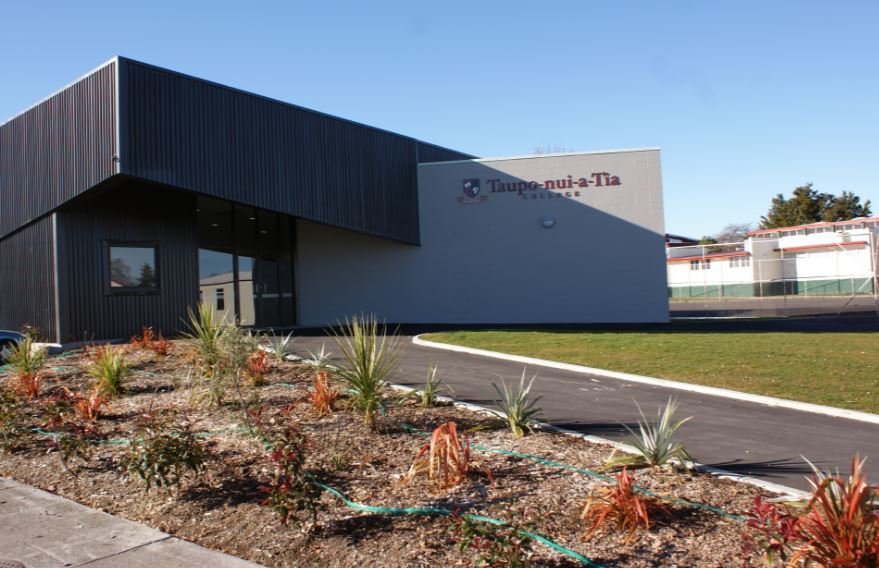 At Taupo-nui-a-Tia College our visitors were accompanied by Associate Professor Mere Berryman, Director of Kia Eke Panuku, and they noted the positive relationship between the University of Waikato and the school.
At Taupo-nui-a-Tia College our visitors were accompanied by Associate Professor Mere Berryman, Director of Kia Eke Panuku, and they noted the positive relationship between the University of Waikato and the school.
‘Many teachers spoke to us in depth about the challenging and inspiring journey to become better teachers through the former Te Kōtahitanga and current Kia Eke Panuku programmes. Cycles of improvement that include lesson observations and data gathering are all geared towards building better relationships with their students’.
Our visitors saw that teachers draw on the knowledge and perspectives of the students and their families and communities. This effective community engagement was evident in a recent launch of eBooks, which the school had gifted back to the community.
They also noted how the Strategic Change Leadership Team involves all staff through its strategic plan development process, drawing on the expertise, enthusiasm, knowledge and aspirations of both Māori and non-Māori staff alike, across all key learning areas of the school. Educational outcomes in retention, attendance, literacy, numeracy and the three levels of senior study are continually improving through the creation of a strong community of learners that involves feeder primary schools, and a strong evidenced-based approach to student achievement.
Mt Maunganui College
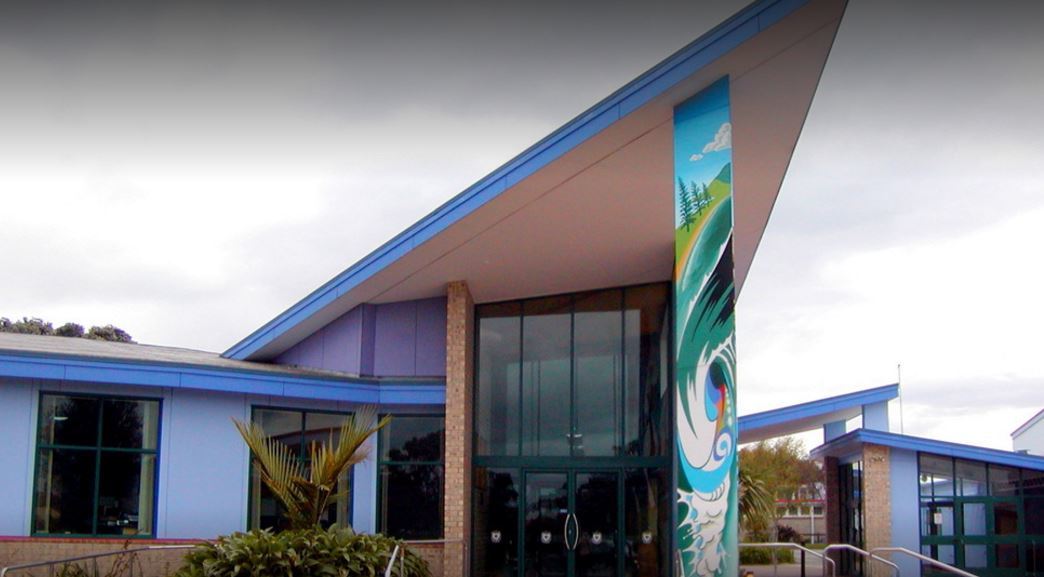 At their last school visit, to Mt Maunganui College, they saw that the embedding of Māori culture was the responsibility of the Deputy Principal and the He Waka Eke Noa team.
At their last school visit, to Mt Maunganui College, they saw that the embedding of Māori culture was the responsibility of the Deputy Principal and the He Waka Eke Noa team.
To generate a greater level of success for Māori students, the school had sought to ‘individualise’ their implementation of the Kia Eke Panuku programme through three key areas of activity - academic achievement, culturally responsive and relational pedagogy, and place and community.
‘Place-based pedagogy is a key theme, and the science faculty spoke to us about a program, located in their school, working with the local iwi and authority to protect the local waterways’.
Our visitors noted that the leadership development approaches include teachers with specific skills, students who demonstrate potential, and the improvement of the school’s relationships with local iwi and the Māori community, which they admitted was an area of ‘unfinished’ business that they needed to work on.
In summary
Overall our visitors were excited by what they saw.
Kia Eke Panuku has given them greater insight into how outcomes for indigenous students can be improved by a determined focus on a culturally responsive, evidence-based approach.
They appreciated how ‘…teachers are being challenged to evaluate, to re-think the implications and outcomes of their own practices, and to take responsibility as individual teachers… the Treaty seems to fundamentally underpin these school transformations, which have improved the educational and broader social outcomes for Māori. This seems to be only the beginning of the story of change and we are all very keen, each in our own way, to know more ’.
